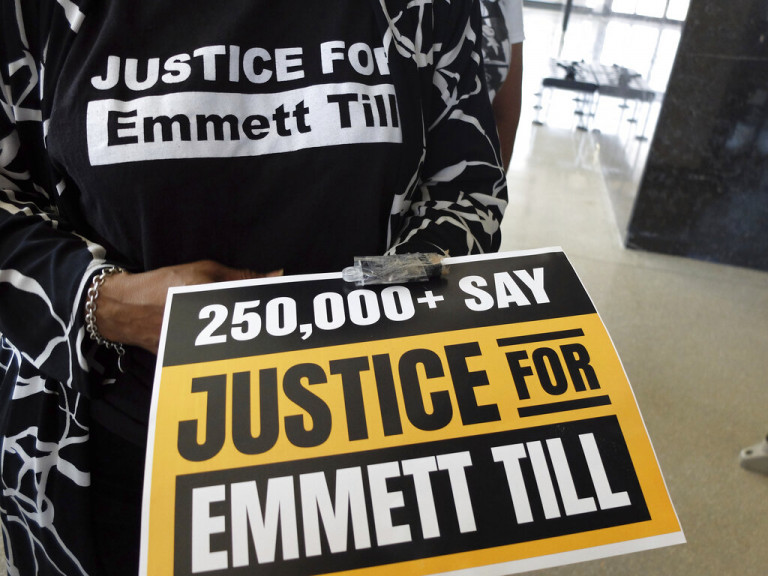Reckoning with racist violence in Illinois

Legislation that would make lynching a federal hate crime in the U.S. is expected to be signed into law by President Joe Biden. The Emmett Till Anti-Lynching Act was years in the making. AP Photo/Rogelio V. Solis
On March 7, 2022, after nearly 200 failed attempts since 1900 to outlaw lynching, Congress passed the Emmett Till Anti-Lynching Act. Throughout several of its versions, the bill was championed by Representative Bobby Rush of Illinois. It is named after Emmett Till, a Black youth from Chicago who, in 1955 at age 14, was lynched and brutally murdered by white men while he was visiting family in Mississippi.
Now the bill is headed to President Joe Biden to sign. To discuss the significance of this legislation and consider the historical and present impact of lynching and racial violence in Illinois, The 21st was joined by an associate professor of African American Studies and History, as well as the publisher of the 1857 project, which examined slavery, segregation and racism in St. Louis, Missouri and Illinois.
For a list of those honored in the Illinois Lynching Victims Memorial, click here.
GUESTS:
Bill Freivogel
Former director, Southern Illinois University School of Journalism | Publisher, the Gateway Journalism Review (The 1857 Project)
Dr. Sundiata Cha-Jua
Associate Professor in the Departments of African American Studies and History, University of Illinois Urbana-Champaign
After more than a century of failed attempts in Congress, the Senate has unanimously passed a bill that would criminalize lynching. It heads to President Biden now to be signed into law. https://t.co/TmqXUAtVKC
— NPR (@NPR) March 8, 2022
Prepared for web by Owen Henderson
Help shape our coverage on The 21st by joining our texting group and answering weekly questions. To join, text “TALK” to 217-803-0730 or sign up with your phone number below:

